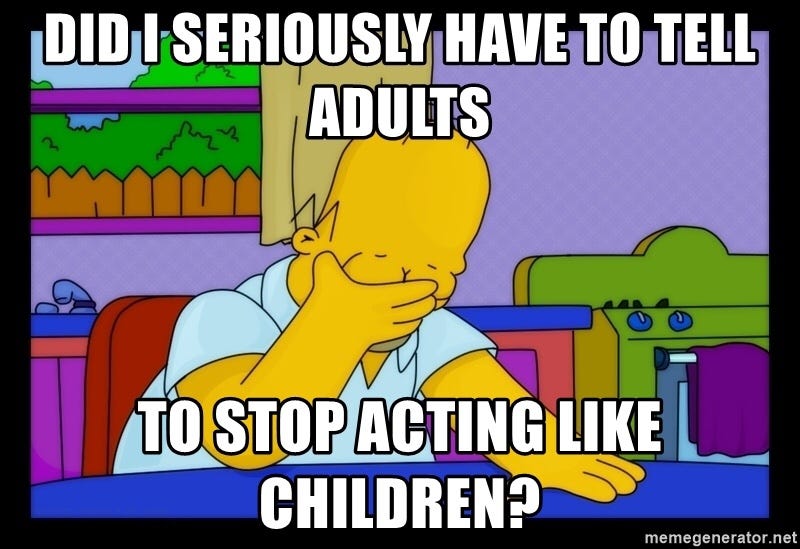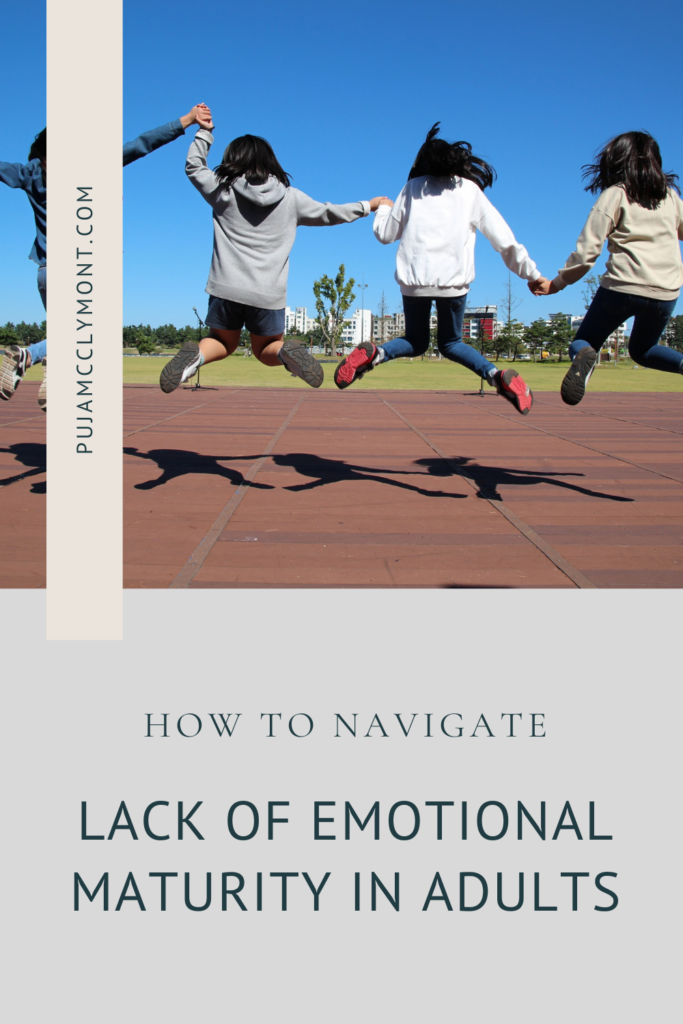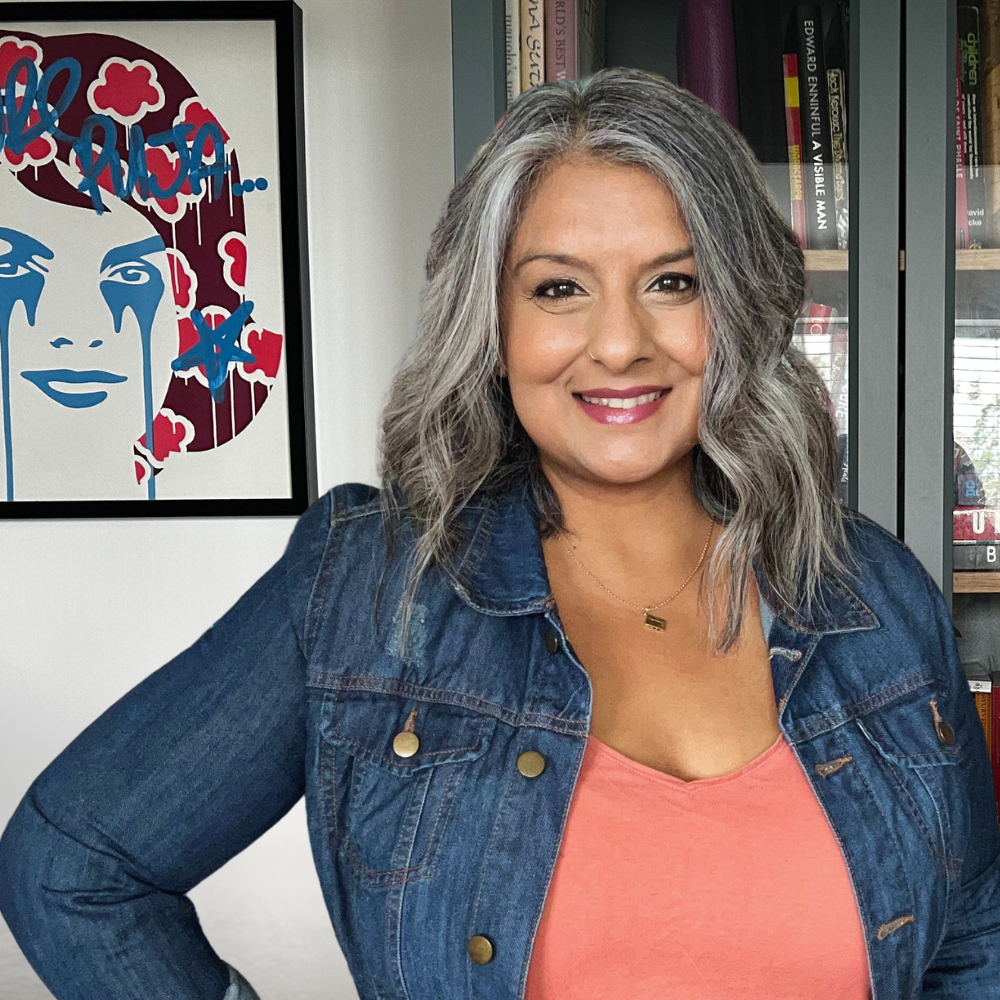
Lack of Emotional Maturity in Adults
Have you ever spoken to another adult and found their response to be a little immature? A lack of emotional maturity in adults is more common than we might think. In this post, I’m discussing why emotional maturity in adults occurs and how you can spot the red flags for better communication.
Why do adults lack emotional maturity?
Neuroscientists have discovered that our brains don’t fully develop until we’re in our early to mid-thirties. However, society deems us adults when we turn around 18 (in the UK). This makes sense in the capitalist world because the model requires you to be working from your late teens to early twenties to rack up that tax income.
In human evolution, there isn’t a factual childhood or adulthood – we’ve made that up to suit our agenda. If we look at adult emotional maturity from a scientific perspective, we can see that our ‘young’ minds don’t actually fully mature until we’ve had some life experience under our belt. This theory falls in line with more philosophical thinking.
Speaking at a meeting of the Academy of Medical Sciences in Oxford in London, researchers explained that our brains slowly transition to adulthood, which is finally reached in our 30s.
Not all adults get the maturity memo
The science now says that emotional maturity in adults takes three decades. This probably makes sense to many of us. I’m sure you’ve heard people in their 40s say that “being in their 40s is the best time of their lives” – and I’d actually agree. Being in my 40s has shown me a different way to experience life. I enjoyed my formative years but I accept them as they are. Being in my 40s, I know my Self better, so I get to have a much more nuanced experience of life. Now we know why this happens.
However, not everyone gets the memo and that’s where we need awareness around adult emotional maturity to better navigate the many relationships we have.
I’m being facetious by saying “never got the memo.” In many cases, people weren’t given the opportunity to grow and their circumstances meant they stopped learning about themselves and accepted who they were at a young age. In some cases, their fight for survival meant they had to do what they had to do in order to get through a day. It then takes choosing to grow (through therapy and other mental fitness support) that emotional maturity in adults can be expanded.
Like I said though, not everyone gets the memo and so we’re left with a host of adults who don’t actually know how to adult in their communications with us. And that’s what I’m covering today.
Emotional maturity at work
Emotional maturity at work is a tricky one especially when some people like to ‘play the game’ and are very good at workplace politics. Some managers are not great leaders and sometimes this can be a sign of a poor level of emotional maturity, at other times, it’s just how they are. So how can you spot the red flags at work? Here are 3 examples (there are many but these show up often):
- Argumentative colleagues tend to lack emotional maturity or even emotional intelligence. At work there are healthy ways to argue points for instance, during brainstorming or decision-making. There are some people however, who simply refuse to see another person’s point of view – these are red flags to consider.
- Compassion-less colleagues are another red flag to pay attention to. These seemingly understanding colleagues think the worst of people and you’ll hear them mutter about someone’s absence or someone’s performance.
- The unhappy ones. Whilst there may be good reason for certain colleagues to be unhappy, there are particular styles of unhappiness that lack emotional maturity which will show up in work. The red flags here may look like never being able to support others in their endeavours, the ones who always say “no” to helping you. They may think that by helping you, you’ll get ahead and they won’t, so it’s easier for them to block that potential eventuality rather than play as a team.

Communicating with family immaturity
This one is probably more common thank you think. A lot of us have interactions with family members and struggle to get any sense out of them. Take a step back now and consider that they may not have adult emotional maturity. I know that might feel harsh to consider but think about it. If your parent had a tough upbringing and had to do a lot of fending for themselves, siblings or any number of actions that put them in survival mode – this would contribute to a reduced level of emotional intelligence.
However, you might be thinking, “well why can’t they just go to therapy and sort themselves out now?” And that’s a fair point but think about that particular family member that you know, do you really think they were ever going to go to therapy?
A lot of our earlier experiences affect the way we develop as adults. Professor Steve Peters who wrote The Chimp Paradox, explains the chimp mind and in essence, those adults who appear to have a lack of emotional maturity are probably living in chimp mode most of the time.
Navigating friendships
Have you noticed how the same friend has problems with everyone in the group? Perhaps there’s a friend who is never supportive or never reciprocates a fair and equal relationship with you? You’re probably friends with their chimp mind.
Friends who never show up, support or participate in a healthy friendship have chosen to stop learning about themselves and they stay in their emotional maturity lane. This is of course frustrating and over time, you’ll notice that you choose different friends and find it easier to let go of old friends.
Friendships are relationships and the love within them needs to have some alignment to having similar values. One of the values that will help cultivate and sustain the friendship is growing together, just like you would a romantic partnership.
Interactions with strangers
I’m no stranger to heckling with a white van man, they live up to their stereotype too easily! But have you ever really got into it with a stranger? It’s all about leading with their chimp minds. As there are no emotional consequences to the interaction, they go all out and bring the naughtiest version of their chimp to the argument. At some point, you realise that there’s no point having this fight with them and you probably retreat. But I bet it sits with you all day and you tell anyone and everyone about it?
Sometimes it can be healthy to bring out the chimp. I recently had an exchange in my building’s Whatsapp group about parcels being delivered to be signed for. I suggested that people either let the group know they’re expecting something and need it signed for or they’re at home to receive it. We’ve had a number of break-ins at the building recently so I didn’t want to let anyone in that wasn’t for me.
Someone in the group didn’t like my intelligent suggestion and he told me to “stop moaning” and just not answer the door. I could have ignored it but this ‘nobody’ decided he had the courage to speak to me so personally, my chimp was ready!
So I did what I would recommend us not to do. I challenged him. I was ready to ‘take this outside’ so to speak. My chimp hadn’t been out for a long while and I literally sat back, looked at this message and said to myself, let’s go! Anyway, there was no fight. He saw I wasn’t to be messed with and he backed down.
How to navigate the red flags in adult emotional maturity
Firstly you can’t change another person. That’s always going to be up to them. However, you can manage the way you react and navigate these interactions for your own sanity.
In each case that I’ve shared above, I’d always suggest that you let the other person speak and you say less. By saying less, you have time to review what’s being said and check if it’s a reasonable response and then mindfully choose your response.
Compassion is key in every instance. We never know the full story. Not with our co-workers, our family, friends and especially strangers. We only see what they give us but I assure, there’s always more to their response than meets the eye.
That doesn’t mean they ‘get a pass’ per se, it just means that if you know you have a higher level of emotional maturity, you are more able to know that you are not responsible for their reactions.
If you try to argue with someone like this, you’ll only end up frustrating yourself and doubting your own growth.
Remember, we’ve all had a different journey and how we behave is usually a reflection of that journey. Be patient, be kind and protect yourself wherever possible through boundaries, reflection and therapy.


Hi, I’m Puja! I’m all about helping driven, purpose-led people create success that actually feels good—without losing themselves along the way.
I mix deep coaching with practical strategies and a soulful perspective to help you thrive in your work, life, and well-being.
This is where I share stories, ideas, and inspiration to spark bold thinking and a more meaningful way of living.
Discover more: SIMPLY WELLBEING SUBSTACK
Registered address: 3rd Floor, 86-90 Paul Street, London, EC2A 4NE
© 2025 Frankly Coaching Ltd.